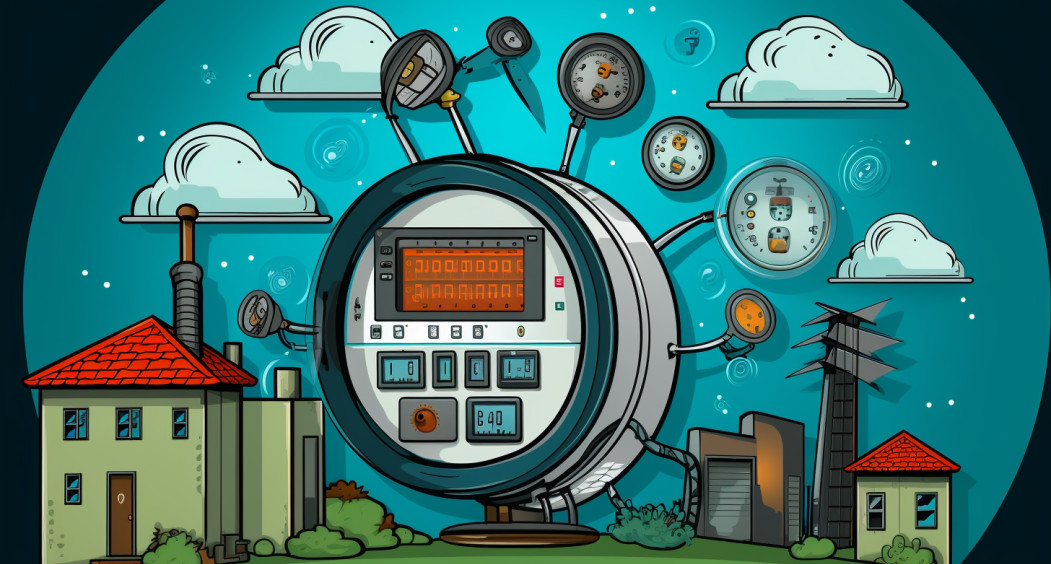In some countries, Smart Meters are not required by law to be installed at an address that receives electricity, but some power companies insist upon it.
Are they invasive?
Whether smart meters are considered invasive or not depends on the specific implementation of the smart meter technology. Here are some factors to consider when evaluating smart meters.
- Data Collection:
Smart meters collect data on energy consumption in near-real-time, which can be more detailed and granular compared to traditional meters. This data can reveal patterns of electricity or gas usage, such as when appliances are being used. Some individuals may consider this level of data collection invasive, as it can provide insights into their daily routines and activities. - Privacy Concerns:
The data collected by smart meters can potentially be used to infer personal information about residents, such as when they are home, their sleep patterns, or even the types of appliances they use. Privacy advocates argue that this data could be misused or accessed without consent, leading to concerns about invasion of privacy. - Regulatory Protections:
In many regions, there are regulations and privacy safeguards in place to protect the data collected by smart meters. These regulations may include data encryption, access controls, and limitations on how utilities and third parties can use and share this data. The strength of these regulations can vary, and some individuals may feel that they provide sufficient protection against invasion of privacy. - Opt-Out Options:
In some areas, residents may have the option to opt out of having a smart meter installed or to limit the frequency of data transmission. This can provide individuals with more control over the data collected by the meter. - Benefits vs. Risks:
Smart meters offer benefits such as improved energy efficiency, more accurate billing, and the ability to monitor and manage energy usage. For many, these benefits outweigh privacy concerns. However, others may prioritize privacy and view the potential invasiveness of smart meters as a significant drawback.
Electrical Magnetic Frequency (EMF)
Smart meters and traditional analog meters both emit electromagnetic fields (EMFs), but the levels of EMFs they emit can differ considerably. Here are some key points to consider:
- Frequency of Data Transmission:
One of the main differences between smart meters and analog meters is the frequency of data transmission. Smart meters typically transmit data wirelessly to the utility company at regular intervals, often using radiofrequency (RF) communication. Analog meters do not transmit data wirelessly at all. - RF Emissions:
Smart meters’ RF emissions are measured by the frequency of transmission, which can vary by utility and location. Smart meters do emit RF radiation more frequently than analog meters, although the level of RF radiation depends on factors such as the meter’s design, distance from the meter, and the specific technology used. - Cellular Modem Emissions:
Many smart meters use cellular communication modules to transmit data. These modules function similarly to traditional cellular modems, connecting to a cellular network to send data to a central server maintained by the utility company. - Analog Meters:
Traditional analog meters do not emit RF or cellular radiation for data transmission, so their EMF emissions are limited to the electromagnetic fields generated by the electrical currents passing through the meter’s wiring and components. These EMFs are typically very low and localized. - Distance Matters:
The strength of EMFs from both smart meters and analog meters decreases rapidly with distance. Being farther away from the meter reduces your exposure to EMFs. - Safety Regulations:
Regulatory agencies in some countries set limits on the levels of RF emissions allowed for devices like smart meters. These limits are designed to ensure that the exposure to RF radiation from smart meters remains within acceptable safety guidelines.
In conclusion, whether smart meters are considered invasive or dangerous depends on one’s perspective and the specific circumstances. Some individuals may find the data collection and potential privacy implications invasive, while others may see the benefits of smart meters as outweighing these concerns. Also concerns about EMFs need to be weighed.
It’s essential for individuals to be informed about data collection practices and to make choices that align with their privacy and health preferences.
